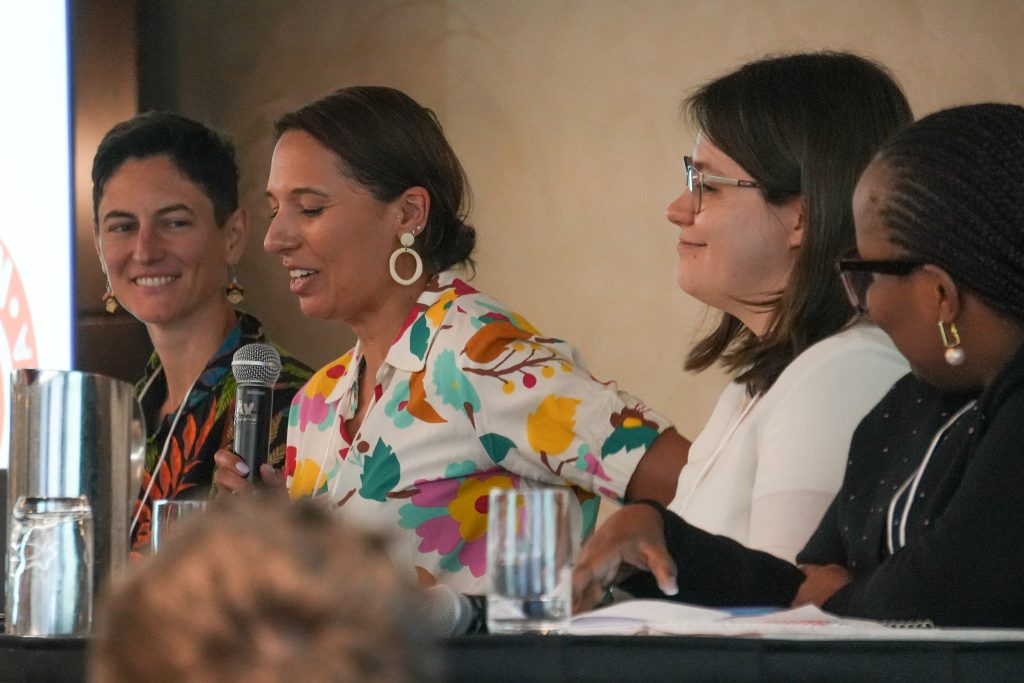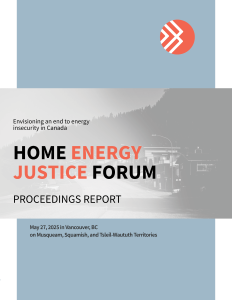Reflections from the Home Energy Justice Forum
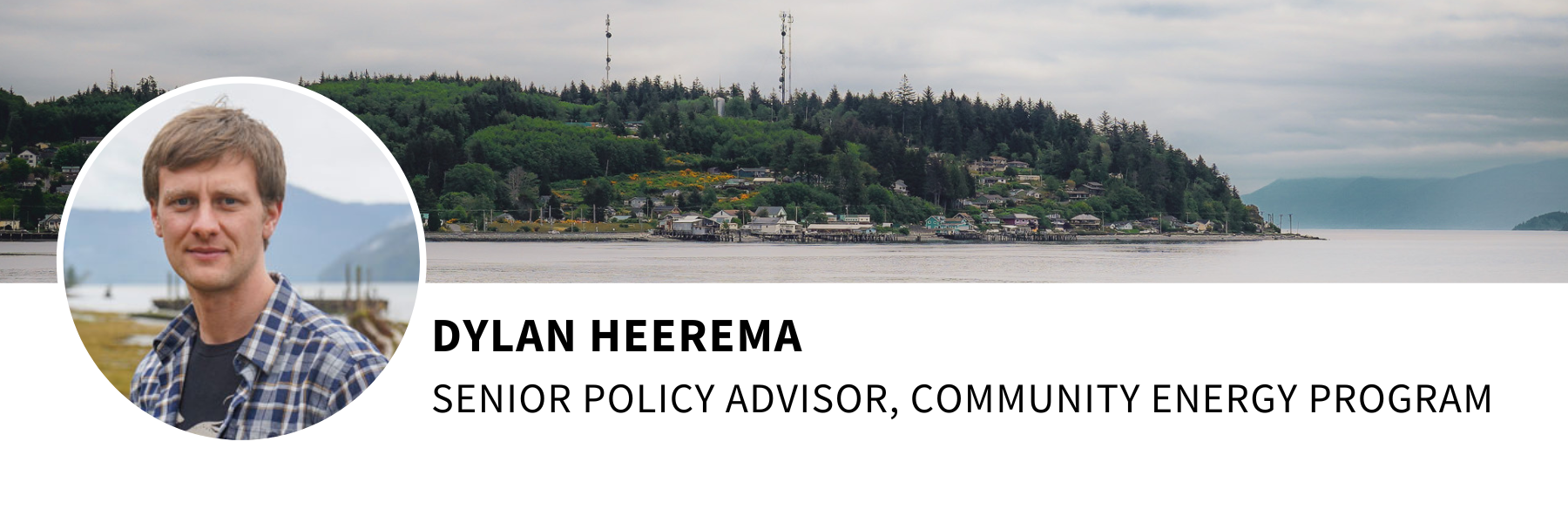 Over 250,000 households in British Columbia experience energy insecurity. This means families are suffering from illness and stress caused by unhealthy temperatures and poor air quality at home – a problem that is only getting worse as our summers get hotter and smokier. At Ecotrust Canada, we aim to help build a more equitable and just housing system, one that recognizes the human right to be safe and healthy at home. On May 27, 2025, we brought together over 110 allies for our second Energy Justice Forum to envision an end to energy insecurity.
Over 250,000 households in British Columbia experience energy insecurity. This means families are suffering from illness and stress caused by unhealthy temperatures and poor air quality at home – a problem that is only getting worse as our summers get hotter and smokier. At Ecotrust Canada, we aim to help build a more equitable and just housing system, one that recognizes the human right to be safe and healthy at home. On May 27, 2025, we brought together over 110 allies for our second Energy Justice Forum to envision an end to energy insecurity.
Energy justice considers the whole picture – not just electricity and fuel, but how energy affects people’s homes, health, and daily lives, especially for communities that face discrimination or economic challenges. Because this work touches on so many different areas, many of us working on home energy justice do so in many different jobs and fields. We don’t often get the chance to meet and work with others who focus on this issue. That’s what made our gathering in Vancouver on Musqueam, Squamish, and Tsleil-Waututh Territories so powerful.
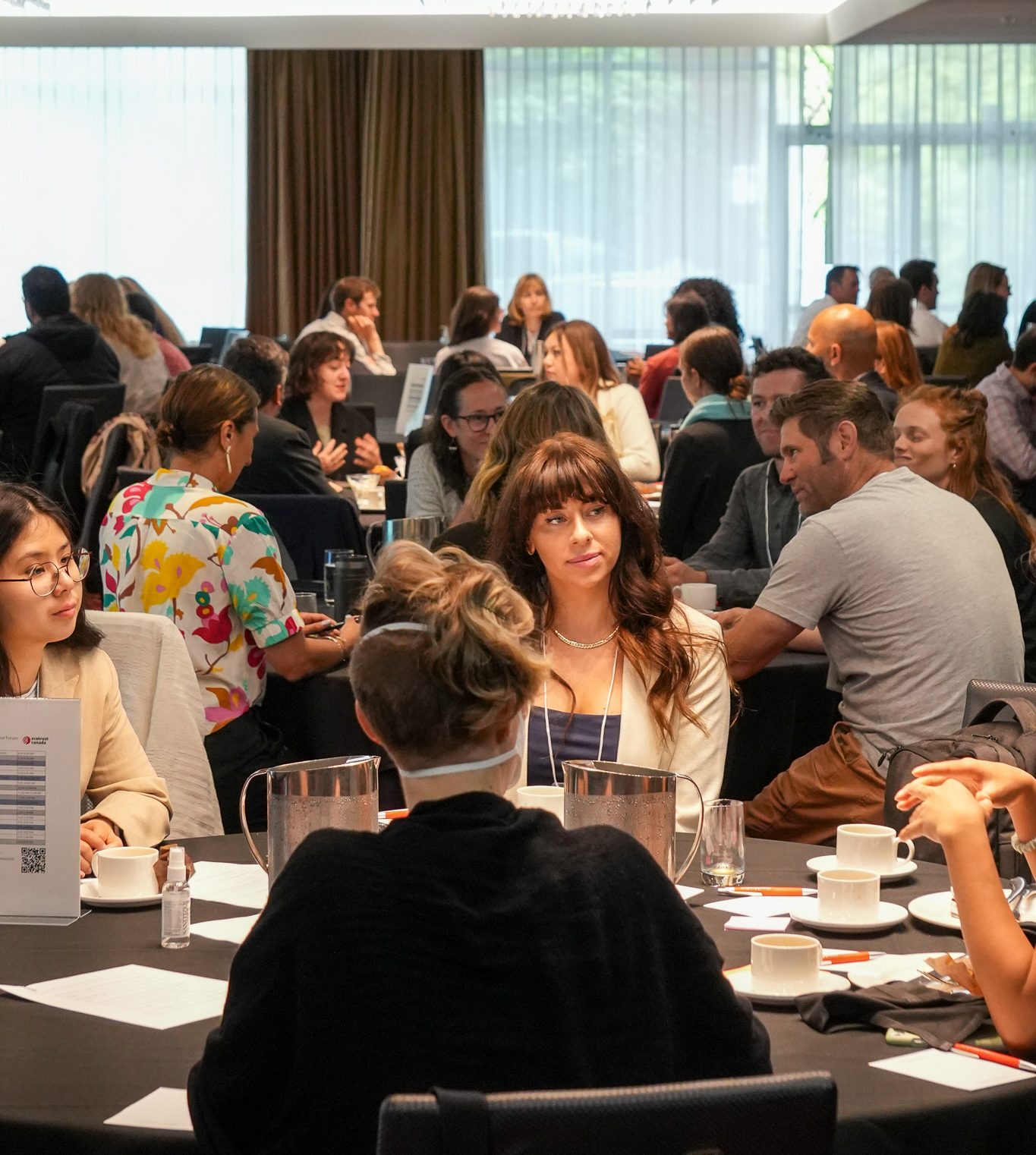 Building Solutions Across Sectors
Building Solutions Across Sectors
At this year’s Home Energy Justice Forum, we built on progress made since our first forum in 2023. We focused on three key issues in BC: low-carbon home upgrades, affordable energy, and protecting people from extreme heat.
“Coming up with solutions that have input from different areas can be really transformative and important and give people the opportunity to bring leadership back to their area of focus and sphere of influence,” said Rowan Burdge, Executive Director, BC Poverty Reduction Coalition.
Energy insecurity is a pervasive issue that overlaps with housing insecurity. In the course of our work, we regularly speak with people facing unaffordable energy bills and unhealthy housing, whether that be due to overheating in the summer, freezing in the winter, or poor air quality. Many of these households are also impacted by housing injustice, like lower-income households that cannot afford a heat pump, or tenants who are forbidden by their landlord to make any changes that would make their homes safer. These are the systemic issues that our Energy team, and many others who work in energy justice, are trying to solve.
“Old buildings aren’t just inefficient, they are stories of long-standing neglect, and when we talk about retrofitting, it’s easy to focus on heat pumps and insulation, but what we are talking about is transforming daily life, restoring dignity,” said Jofri Issac, a researcher who specializes in systems mapping of socio-ecological issues at Royal Roads University.
At the forum, participants called for bold action that challenges existing systems and structural inequities – such as enshrining the human right to affordable, safe, and adequate housing. While they identified actions that could improve energy affordability and make homes healthier, participants pointed out that energy and health-centric policies can only go so far. Real change requires tackling systemic housing injustices. Many rejected the notion that landlords and corporations should profit from unsafe and unaffordable housing while families and renters suffer.
Contributions from participants are summarized in our proceedings report, highlighting areas of alignment.
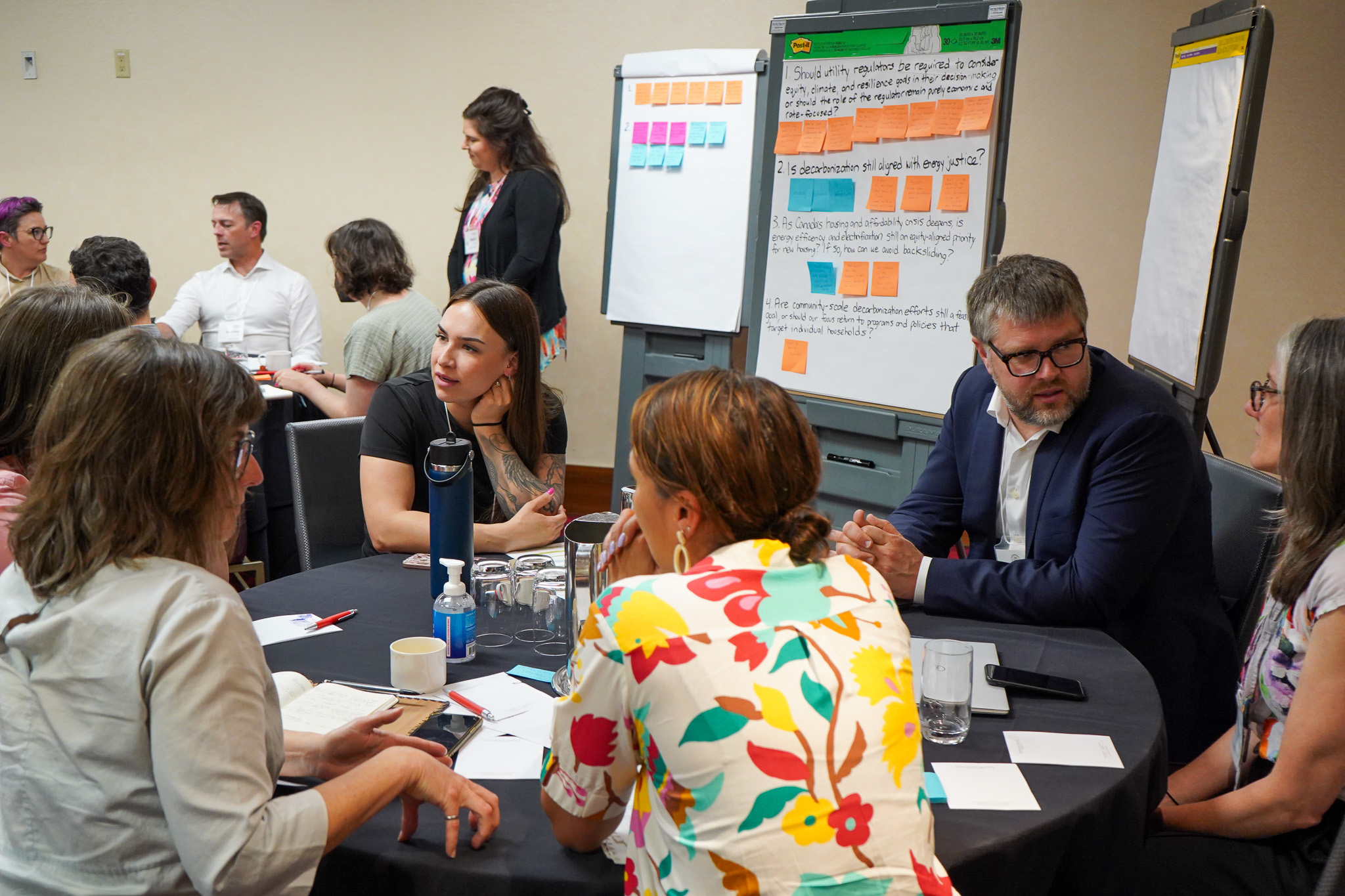
- Participants engage in one of the workshop sessions at the forum. (Ecotrust Canada photo)
Community Leadership at the Centre
A key theme throughout the day was that public money should help vulnerable people and support nonprofit housing, and that people need to have control over their own homes and living situations. Another prominent theme was about harnessing the power and diversity of communities.
“I think programs need to understand the unique needs and contexts of the communities that we’re working in, especially for Indigenous groups… and I think we do that by co-developing policies and programs with communities and equity deserving groups,” said Kayla Fayant, Energy Advisor Program Manager, Indigenous Clean Energy.
Energy justice challenges are daunting, but gathering this inspiring group of people grounded us in the importance of the work as we envisioned what is possible. Together, we are taking what we’ve learned from the Forum and using it better to inform our ongoing policy and research work in BC.
“We all know about who’s going to bear the brunt of the climate crisis. It’s not wealthy people, it’s low-income people. But too often, those are the people who are not being included in the conversations that we’re having … By including those groups in the policies that we’re talking about today, we can make sure that not only is their perspective not left out, but also that we’re not alienating a huge class of people,” said Emily Armitage, lead organizer for BC ACORN.
Read the 2025 Proceedings Report.
Key Action Items from the Forum
Some of the key action items identified by Forum participants, and that we will be working with our partners and allies to advance, include:
Immediate Protections
- Regulate safe indoor temperatures in rental units, both provincially and municipally
- Deploy emergency cooling solutions in homes, such as window shades and air conditioners (or heat pumps if possible)
- Leverage climate and building data to prioritize the homes at greatest risk of overheating
Systemic Changes
- Convert most existing mechanical systems to heat pumps, and incorporate passive cooling measures in residential buildings
- Increase the stock of cooperative, non-profit, and public housing, and secure targeted, flexible, and long-term funding for this housing
- Support contractor training and capacity in rural areas that are underserved by key trades such as HVAC
- Develop an integrated utility resource and energy plan for BC, replacing the siloed approach currently taken by BC Hydro and FortisBC
- Align retrofit programs with climate action goals where possible, but recognize that improving public health and affordability can also be the primary objective
- Recognize safe and affordable housing as a human right, including the right to healthy indoor temperatures
Community Empowerment
- Tailor messaging and language to the needs and concerns of communities
- Shift retrofit program design and delivery to a model that is led and co-created by the communities these programs are intended to serve
- Ensure support for ongoing Indigenous-led decision-making in programs affecting Indigenous housing and energy
- Empower tenants with tools to report on and organize around unsafe housing conditions
- Increase funding and support for rural and Indigenous communities, and centre their unique context and needs, including skill training and retention
- Involve youth organizations such as Youth Climate Corps to install projects and retrofit buildings
- Transfer and share learnings from successful projects in rural, remote and Indigenous communities
- Secure targeted, flexible, and long-term funding for band-owned and non-profit housing

